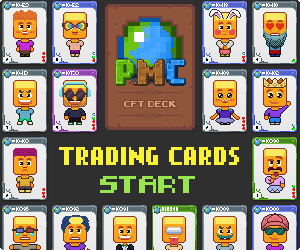179

Good day fellow bean!
There will come a time when your datapack does not work. If you're like any of the rest of us, this will happen often. Code will almost never work the first time you try it. An error in your code is referred to as a bug. Removing these bugs is called debugging. This guide will teach you how to do just that :DWhat are bugs?
Bugs are a fancy programmer term for an error in your code. There are two main types of bugs:- Syntax error: This is a bug in the actual written code. This is caused by the code you write being incorrectly written so that the computer literally can't read it. For example, writing "executr as @a" would be a syntax error because "executr" isnt a command.
- Logic error: This is a bug where the written code is correctly written, but the code doesn't do what you want it to. This is caused by a mistake in the code logic.
Finding and debugging syntax errors
Syntax errors are very easy to spot and fix. Minecraft has output logs which literally tell you if your code is incorrect. When you're coding datapacks, its a good idea to always have the logs open if you need to double check it. You can open the logs by turning a setting in the launcher on, then launching Minecraft.
Syntax errors will show up in red text when you /reload your datapack. Sometimes different errors are in yellow text instead.

The error tells you exactly where the error is - in this case it's in the function "be:give" at line 1 after "give @s". And indeed I did spell "loot" as "lot", which caused the error.

If you don't understand the error, then you can ask in our Discord server for help.
Finding logic errors
Logic errors are more difficult to find because there's nothing actually incorrect with the code you wrote, it just does something other than what you want it to do.An easy way to find where a logic error is in the code is to make use of the say command. This command will send any message to the chat, making it easy for you to know when and if your code actually runs as you expect it to. You can easily put a "say This function ran correctly" command in your function - If the function runs, then it will send a message to the chat. It will also send the name of the entity that ran the function to the chat, so you can see if your function is executed by the correct entity.
Similarly, you can use the tellraw command for more advanced debugging. The tellraw command also has the capability to show you the value of scoreboards and NBT values, so you can check what data your code is using. For instance, if you want to check the value of a scoreboard, you could use the following command:
tellraw @a {"score":{"name":"@s","objective":"some_scoreboard_objective"}}Based on the output of these commands in chat, you can use this to tell where your code goes wrong. (Just make sure to remove them after you've found the error, otherwise it can get annoying).
Debugging logic errors
Unfortunately, debugging logic errors in your code isn't as easy as fixing one spelling mistake. But yet there are still techniques that us mere mortals can use to fix these problems.One way to solve logic errors is to recreate the error in a separate project. When you remove all the other context of the pack, you can focus just on the bit which doesn't work. You can just copy out the code you want to fix into a separate datapack, then fix it there. Once you've identified and fixed the problem, you'll know how to fix it for realz.
If that doesn't suit you, then there's other methods. You can, as mentioned before, use the tools like /say and /tellraw to print information in real-time about how your datapack works. There's also other useful commands, such as /scoreboard objectives setdisplay <objective> sidebar to show the values on a scoreboard on your screen, as well as /data get, which will print the value of any NBT data.
Thanks for reading!
You made it to the end! Hopefully you now know how to debug your datapacks. If you want more help, or if you want to improve your skills more, please join our super friendly Discord community: https://discord.datapackhub.net/. We've got teams of people waiting to help you with any questions or projects you may have!
| © 2024 Silabear (Datapack Hub). Licensed under CC BY-SA 4.0 |
| Tags |
tools/tracking
6180370
6
debugging-your-datapack












Create an account or sign in to comment.